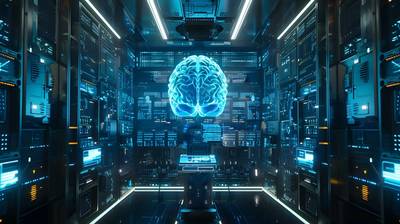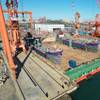Tip #59 – AI to Maritime Trainers: "Watch Your Back …"
Last week’s headline in the Financial Times was startling to me: “Andreessen Horowitz raises $7.2bn and sets sights on AI start-ups“. Oh boy.
Andreessen Horowitz is one of Silicon Valley’s most prominent venture capital firms with an eye for investing in the next generation of tech companies that will change our lives. Their new fund tells us that the people who know the science of AI now believe it is poised to make an outsized global impact. AI is no longer a “tomorrow” thing. It is a “today” thing. And it may not be long until we start to find out who is correct - those who fear it, or those who welcome it.
Clearly the impacts, both good and bad, will touch every part of our lives. But since we are a community of maritime trainers, let’s explore one very narrow but interesting question about the possible impact of AI.
Will AI replace us as maritime trainers? Or will it just help to make us more effective and more efficient?
Well - it is a good question and there are some fairly credible arguments on both sides of the debate. While the topic is enormous and we can only touch on a sliver of it here, let's dive right in to the heart of the argument.
“AI will replace trainers"
Central to the “AI will replace trainers" argument is that AI can process and analyze vast amounts of data much faster than we humans do, and in many ways, it is already doing so with more insight than we can. This could help to produce better and more consistent training outcomes. AI-driven programs can run 24/7 without the need for breaks or downtime, providing training opportunities that are not limited by human constraints.
Consider an AI-driven virtual training module that is designed to teach navigational skills. Trainees log into a cloud-based training system that operates 24/7. The system presents interactive scenarios based on real-world data, such as navigating through busy shipping lanes or poor weather conditions. The AI assesses each trainee’s decision in real time and provides immediate, detailed feedback. If mistakes are made, the AI system automatically generates additional relevant scenarios until the trainee demonstrates proficiency, ensuring a consistent level of competency across all trainees. All, by the way, in the native language of the trainee.
This highlights a point that speaks to the heart of the potential for AI to replace trainers. AI technologies, particularly machine learning algorithms, can continuously adapt the training they deliver based on real-time performance data from the trainee - whether that data is gathered during training or on the job. This level of training customization for each individual will easily exceed what is feasible in human-led sessions where trainers might struggle to provide personalized attention to each member of a group. Essentially, every trainee would now have available to him or her a fully dedicated, 24/7, expert trainer who is deeply aware of their trainee’s capabilities, knowledge, and experience, and who exists for no purpose other than to maximize the skills and knowledge of that individual trainee.
As an example, consider an AI system that is used for training the skill of engine troubleshooting. Each trainee starts with a diagnostic test that the AI uses to identify their current knowledge level and learning pace. The AI then customizes the curriculum separately for each individual, focusing on areas where the trainee is weakest. If a trainee struggles with fuel injection systems (for example), the AI provides a series of interactive, step-by-step tutorials and simulations specific to fuel injection problems. As the trainee improves, the AI increases the difficulty and complexity of the problems, ensuring the trainee is continuously challenged and engaged.
And meanwhile, as the trainee is learning, so is the AI! It is learning lessons about which techniques work best with various trainees and will incorporate those lessons into its future work with these and other trainees. In this way the AI itself is continuously improving.
In each of these examples above, the training experience is fully automated and personalized - no human trainer required. And conceivably, it will be better at it than we are. However, the question remains whether an AI is capable of a nuanced understanding of the trainee’s needs, the ability to adapt to completely unforeseen circumstances, and the personal mentorship that human trainers excel at. Will human trainers still have anything to offer that AIs don’t offer now and might never be capable of? If so, perhaps AIs will be a powerful tool of, rather than a replacement for we human trainers. We simply don't know yet.
In the next edition of Training Tips for Ships, we will look instead at the potential for a collaborative working relationship between trainers and AIs to bring the best of both worlds to the training mix.
Until then, thank you for reading and sail safely!
















